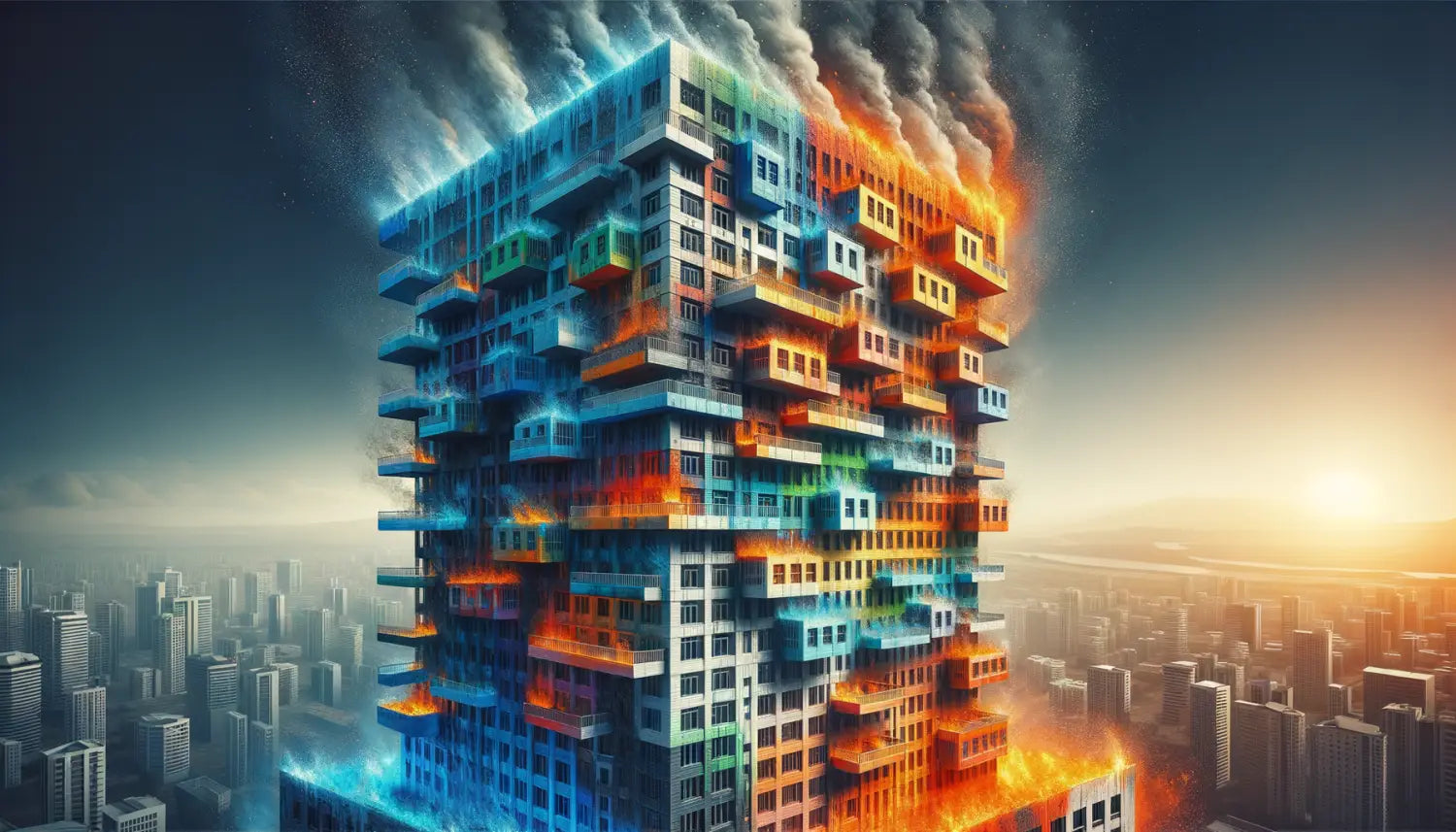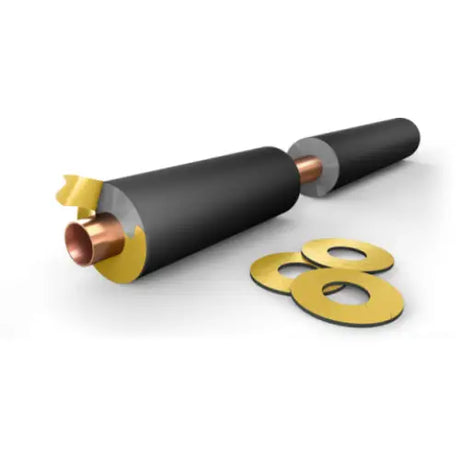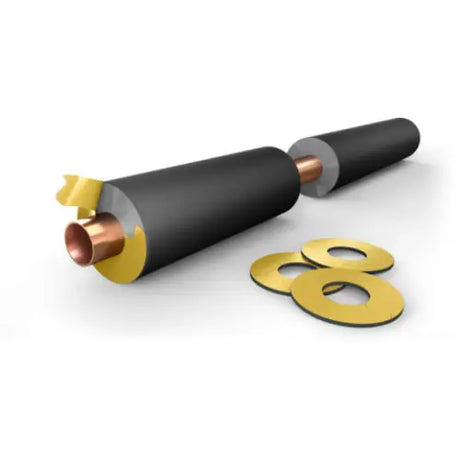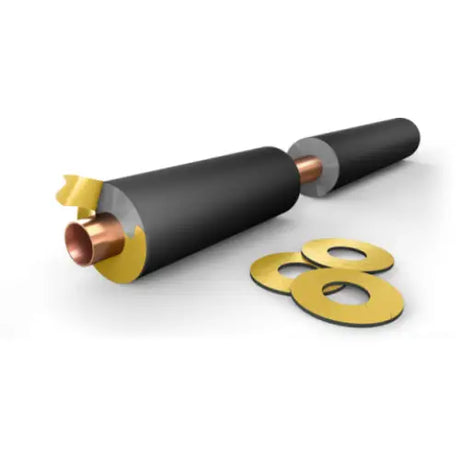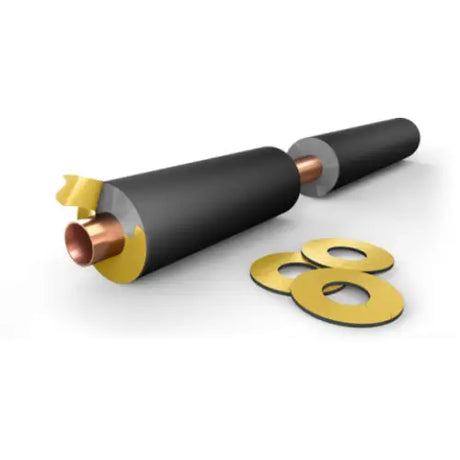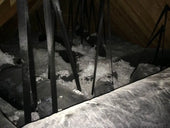Imagine a world where buildings stand resilient against the raging tongues of flame, where industrial facilities endure the scorching trials by fire without crumbling into ash. This isn't a fantasy but a reality made possible by the marvels of fire-resistant coatings and paints. But why are they so important, you ask? Well, these aren't your ordinary tin of paint; they're the unsung heroes in fire safety, the silent guardians that preserve life and infrastructure from the devastating effects of fire. In this article, we'll embark on a journey to unravel the mysteries behind these formidable protectors, exploring their types, benefits, and applications. So, buckle up, and let's dive into the world where safety meets science.
Understanding Fire-Resistant Coatings
When we chat about fire-resistant coatings, what exactly springs to mind? These are not just any old slapdash of pigment on the wall but specially formulated substances that provide passive fire protection. They're designed to resist heat, withstand flames, and offer a crucial time window for evacuation and firefighting efforts.
Types of Fire-Resistant Coatings
Now, let's talk shop about the types of fire-resistant coatings. There's quite the variety, each with its own unique charm:
Intumescent Coatings
Intumescent coatings are the chameleons of fire protection. Upon exposure to extreme heat, they undergo a dramatic transformation, swelling up to form a char that insulates the structure from the heat. It's like a fire-resistant bubble wrap for your building.
Cementitious Coatings
Cementitious coatings are the sturdy, reliable type. Made from cement, these coatings are applied thickly and are as robust as they come. They're like the steadfast knights in shining armour, standing guard against the fiery foe.
Reactive Coatings
Now onto the reactive coatings – these are the clever ones. They contain chemicals that react when things heat up, forming a protective layer. Picture it as the building's own fire-fighting agent, springing into action when the heat is on.
How Fire-Resistant Coatings Work
But how do these coatings work their magic? It's all about the chemistry. When fire strikes, these coatings change chemically or physically to shield the material beneath. They're like an invisible shield, deflecting the fiery arrows aimed at the heart of the structure.
Advantages of Using Fire-Resistant Coatings
Using fire-resistant coatings isn't just about following the rules; it's about stacking the deck in favour of safety. Let's explore the ace up the sleeve these coatings provide:
Protection of Structural Integrity
Firstly, these coatings are like the bodyguards for the building's bones – they ensure the structural integrity remains unharmed. This means that in the face of a fire, the building won't just give up and collapse.
Prevention of Fire Spread
Next, they're essentially the fire brigade in paint form – they help prevent the spread of fire, keeping it contained like a lion tamer with a particularly fiery beast.
Insulation Against High Temperatures
And let's not forget insulation – these coatings are like the thermal flask of the construction world, keeping the searing heat at bay and maintaining a cooler temperature for the core structure.
Compliance with Building Regulations
Lastly, compliance is key. Like a student adhering to the school's dress code, buildings too must meet certain standards. Fire-resistant coatings ensure that your structure is dressed for safety success.
Application Areas for Fire-Resistant Coatings
Fire-resistant coatings have a guest list that spans various industries. Let's take a peek at where they're making the rounds:
Industrial Facilities
From factories to warehouses, these coatings are the silent sentinels, always on duty to protect the workhorses of the economy.
Commercial Buildings
In commercial buildings, whether it's an office block or a shopping centre, these coatings are the behind-the-scenes heroes, ensuring business as usual, even when things heat up.
Residential Buildings
Homes aren't just bricks and mortar; they're sanctuaries. Fire-resistant coatings act as the invisible shield, guarding our treasured abodes.
Oil and Gas Industry
In the high-risk oil and gas industry, these coatings are the fire wardens, standing vigilant against the ever-present threat of a blaze.
Transportation Infrastructure
Let's not overlook transportation infrastructure, where safety is paramount. These coatings are the unsung heroes, keeping tunnels, bridges, and stations safe from the ferocious appetite of fire.
Considerations for Choosing Fire-Resistant Coatings
When selecting the right fire-resistant coatings, there are a few things to mull over. It’s like picking the right attire for a hike; you wouldn't wear flip-flops to scale a mountain, would you?
Type of Substrate
Firstly, consider the substrate, or the surface you're applying it to. Is it steel, wood, or concrete? Each one demands a tailored approach, much like different skin types require specific skincare products.
Environmental Factors
Then, take a gander at the environmental factors. Is the coating going to face the blistering sun or the biting cold? It’s like choosing the right coat for the weather – you wouldn't wear a parka in a heatwave!
Durability and Maintenance
Durability and maintenance are also crucial. How long will the coating last before it needs a touch-up? It's like buying a car – you'd want one that doesn't need servicing every other week.
Regulatory Requirements
And of course, there's the red tape. What do the local building codes say? It's akin to checking the road signs before turning – you don't want to find yourself going the wrong way.
Key Features of Fire-Resistant Paints
Now, let's talk about the cousin of coatings – fire-resistant paints. They're not just a pretty face; they've got some serious features under the hood.
Composition and Ingredients
Considering their composition and ingredients, fire-resistant paints are a complex concoction, much like a chef's signature dish, each ingredient playing its part in creating a masterpiece of protection.
Heat Resistance Capabilities
Their heat resistance capabilities are the main event – these paints can stand the heat without getting out of the kitchen. They're like the culinary wizards, able to handle the sizzling pans without breaking a sweat.
Application Methods
Applying fire-resistant paint isn't rocket science, but it does require some know-how. Whether you use a brush, roller, or sprayer, the goal is uniform coverage – think of it as icing a cake so that every inch gets its fair share of the sweet protection.
Colour Options
And colour options? Fire-resistant paints aren't just about safety; they come in a variety of shades to suit your style. It's like having a fire warden dressed in haute couture, blending safety with aesthetics.
Types of Fire-Resistant Paints
With a palette of fire-resistant paints at your disposal, choosing the right one is crucial. Each type brings something unique to the table, much like different genres of music set distinct moods.
Acrylic-based Fire-resistant Paints
First up are acrylic-based fire-resistant paints – the pop music of the paint world – versatile, popular, and suitable for a variety of surfaces. They're easy to apply and quick to dry, like a catchy tune that's easy to hum along to.
Epoxy Intumescent Fire-resistant Paints
Epoxy intumescent fire-resistant paints are the rock stars, tough and durable. They provide a thick layer of protection that swells in the face of heat, offering robust defence in high-risk areas.
Silicone-based Fire-resistant Paints
Silicone-based fire-resistant paints are the smooth jazz; they're flexible and can withstand extreme temperatures, making them ideal for both interior and exterior use.
Alkyd Fire-resistant Paints
And then there's alkyd fire-resistant paints – the classical music of the bunch – traditional and reliable, they're often used for steel structures, providing a hardy layer of fire protection.
Benefits of Using Fire-resistant Paints
The virtues of using fire-resistant paints are as many as the stars in the night sky. Let's explore a few key benefits that make them a bright choice.
Enhancing Fire Safety Standards
Firstly, they elevate fire safety standards to new heights, like a lighthouse guiding ships to shore, ensuring a safer environment for occupants and assets.
Long-term Cost Savings
Then there's the aspect of long-term cost savings. By preventing fire damage, these paints are like a piggy bank, safeguarding your investment for the future.
Aesthetically Pleasing Finishes
They also offer aesthetically pleasing finishes. With a range of colours, these paints are the interior designer's best friend, merging safety with style.
Resistance to Chemical Exposure
Lastly, their resistance to chemical exposure makes them as reliable as a seasoned sailor in choppy seas, ensuring that the protective layer remains intact even when harsh chemicals are present.
Application Techniques for Fire-resistant Paints
When it comes to slathering on fire-resistant paints, technique is everything. It's like the difference between a slapdash DIY haircut and a professional snip – the right approach matters.
Brush and Roller Application
For smaller areas, a brush or roller can be your trusty companions. It's a hands-on approach, like knitting a jumper, where precision and care result in a snug fit of protection.
Spray Application
For larger expanses, spray application is the way to go. It's like using a hose to water the garden – efficient and even coverage in less time.
Compatibility with Different Surfaces
And let's not forget compatibility with different surfaces – it's crucial to choose a paint that gets along well with the material it's protecting, like picking the right dance partner for a flawless performance.
Testing and Certification Standards
Navigating the world of fire resistance testing and certification standards can be like deciphering an ancient scroll – complex but necessary.
Fire Resistance Testing Procedures
Fire resistance testing procedures are rigorous and detailed, ensuring that the products meet the mark. It's like a product's very own trial by fire – quite literally.
Regulatory Standards for Fire-resistant Coatings and Paints
Then there are the regulatory standards, the rulebook that all fire-resistant coatings and paints must play by. It's the industry's version of the Ten Commandments, etched in stone and non-negotiable.
Importance of Third-party Certifications
Third-party certifications are the unbiased judges, the seal of approval that tells you the product is up to snuff. They're like the culinary awards for a chef, a nod to their excellence.
Maintenance and Inspection of Fire-resistant Coatings
Keeping fire-resistant coatings in tip-top shape is akin to maintaining a car; regular inspections and upkeep are essential.
Regular Inspections and Maintenance Schedules
Regular inspections and maintenance schedules are the preventative health checks for your coatings, ensuring they're always ready to face the heat.
Repair and Reapplication Considerations
When it comes to repairs and reapplication, it's like patching up a well-loved coat – sometimes, a little TLC can extend its life significantly.
Impact of Environmental Conditions on Longevity
And the impact of environmental conditions on longevity cannot be understated. It's like the wear and tear on a pair of hiking boots; the tougher the trail, the more care they need.
Costs and Budget Considerations
Discussing costs and budget considerations is as important as planning a holiday; you need to know what you're in for.
Initial Investment for Fire-resistant Coatings and Paints
The initial investment for fire-resistant coatings and paints can seem steep, like buying a plane ticket for an exotic trip – but remember, it's the safety and peace of mind you're paying for.
Long-term Cost Benefits
Then there are the long-term cost benefits. It's an investment that pays dividends by preventing costly damage, much like insulating your home to save on energy bills.
Comparison with Traditional Coatings and Paints
And when you compare them with traditional coatings and paints, it's clear that while the upfront cost might be higher, the protective benefits are like an insurance policy against fire damage.
Case Studies and Success Stories
Peering into real-life applications of fire-resistant coatings and paints can be as enlightening as thumbing through a history book. These are the tales of triumph over tragedy.
Real-life Applications of Fire-resistant Coatings and Paints
From skyscrapers to historic theatres, fire-resistant coatings and paints have played a pivotal role in safeguarding structures, much like a knight's shield in battle.
Impact on Fire Safety and Property Protection
The impact on fire safety and property protection is measurable and significant, like the difference a vaccine makes during an epidemic – it saves lives and property.
Notable Projects and Their Outcomes
And then there are the notable projects, the shining beacons of success that showcase the potential and power of these protective measures – they're the success stories that others aspire to replicate.
Conclusion
As we wrap up this foray into the world of fire-resistant coatings and paints, let's recap the benefits that make them indispensable in modern construction and industry. They're the silent guardians, the watchful protectors, and the defenders of safety. So, whether you're a building owner, a contractor, or simply someone who cares about safety, isn't it high time to consider adopting these fire-resistant solutions? After all, when it comes to fire safety, isn't it better to be safe than sorry?

